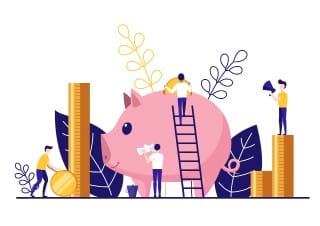Although we may not think of it this way, we all have internal accounts or barometers that measure what we put into and get out of our relationships. These are our “emotional and relational” accounts and in them, whether consciously or subconsciously, we track who makes deposits and withdrawals. In this accounting, deposits are acts of kindness, love, support, communication, understanding, and empathy. Withdrawals are any actions or behaviors that have a negative impact on the relationship such as lying, cheating, betrayal, neglect, disrespect, and hurtful words or actions. Sometimes a negative impact can simply be someone who consistently withdrawals by not giving back support they have taken.
Deposits are the foundation. They build trust, strengthen bonds, and enhance the overall health of a relationship, while withdrawals erode trust, create distance, and can ultimately damage or even destroy a relationship if they accumulate. Whether we realize it or not, these internal accounts are in place for all our relationships, whether with family, longtime friends, short time acquaintances, or professional colleagues. We even have these relationships with businesses.
Years ago, I was asked to join a networking group that mostly revolved around office real estate. The group’s purpose was to share contacts, connections, and information. Before too long, I realized that I was taking more than I was giving to the group, a situation I was (and still am) uncomfortable with. So, I spoke to the friend that invited me to join and let him know that I was leaving the group because I was getting more from it than I was able to contribute, which is not how I operate. Since I am an avid networker, I understood that networking is not a zero-sum game; it’s not always one for you one for me. In this case, it was very lopsided. My friend pointed out that my contributions may not have been the same type as the others (e.g., connections and contacts); instead, I brought information from other sectors to the table the group did not usually hear about, and in this way, my contributions were valuable. He assured me that if the relationship was lop-sided the group would let me know. So, I stayed!
Thinking back on it now, it was an incredibly important conversation, one that not only led to me staying in the group, but it also deepened our friendship and understanding of each other. In that way, we both made deposits to our respective internal accounts. Let’s be honest, we all know people that make more withdrawals than deposits and we may even occasionally say it out loud. Consider the friend who you always do favors for but is never available when you need one! We also know people that consistently make more deposits than withdrawals. Although I would like to think I don’t keep track, the reality is, I do. We all do, whether consciously or subconsciously. This is how we decide where to deepen relationships and where to distance ourselves. In more extreme situations, it’s how we decide to end relationships and reduce negativity. It may take some time, but eventually, we all make these decisions and take actions.
The concept of the relationship “bank account” is an interesting one but it makes perfect sense. We all must put the work into our relationships (deposits) to have meaningful ones and working to put more in than you take out is active and intentional. Whether in a personal or professional domain, the path to building enduring, enriching relationships lies in the consistent practice of kindness, support, and reliability. The result is a flourishing relationship bank account that enriches our lives in countless meaningful ways.
“Always give without remembering and always receive without forgetting.” – Brian Tracy
What will you deposit this weekend?
-Vijay
